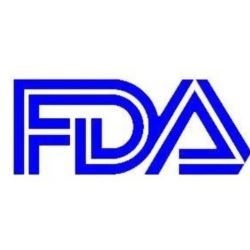The Agency's drug approval and enforcement actions are falling through the cracks, while regulators are squandering time and resources on insubstantial trivia.
The FDA is the nation’s most ubiquitous regulatory agency, responsible for overseeing products – drugs, medical devices, tobacco products, and most foods -- that account for about 20 cents of every dollar consumers spend. It is currently going through a patch with priorities that seem to make little sense.
Drug approval and enforcement actions are falling through the cracks. An example of the former is the Agency’s recent failure to approve, even under Emergency Use Authorization, a new drug called PEG-lambda interferon that performed well in a medium-sized Phase 3 trial to treat COVID-19 infections. The results were published in February:
-- Patients who received the drug within seven days of showing symptoms were 51% less likely to be hospitalized or to need an extended emergency room visit than those given a placebo.
-- People given PEG-lambda within three days of the onset of symptoms had a 58% lower risk.
-- Vaccinated patients treated with PEG-lambda in the study experienced a 51% reduction in hospitalizations relative to the placebo.
-- In unvaccinated patients treated within the first three days of symptom onset, there was an 89% reduction compared with the placebo.
In summary, the two primary endpoints of the trial were met — both COVID-related hospitalizations and emergency department stays of longer than six hours were significantly lower in patients who got the drug. Another critical finding was that the patients who received PEG-lambda experienced no more side effects than those who received a placebo. (Paxlovid, the leading COVID drug, is very effective but has many potentially troublesome drug-drug interactions with other medicines and supplements.)
As a 15-year veteran of the FDA who evaluated drugs in the same class as PEG-lambda, based on publicly available data, I believe it could at least have been approved under Emergency Use Authorization. PEG-lambda could be especially valuable given the growing dominance of a new subvariant of SARS-CoV-2 Omicron called XBB.1.16, which is both more transmissible and has greater immune-escape than its predecessors. And, of course, the virus continues to evolve.
Another recent example is the Agency’s slow-walking approvals for vaccines to prevent Respiratory Syncytial Virus (RSV) infections, viral enemy number one for children. It results in more pediatric hospitalizations than any other single cause, and pediatricians have long been helpless to stem the tide of RSV-infected newborns, who are at particularly high risk for landing in the hospital. (The first RSV vaccine was finally approved for older adults by the FDA on May 3rd, and the second on June 1.)
Also on the subject of vaccines, the FDA recently announced that most previously unvaccinated Americans can now receive only a single dose of the bivalent Moderna or Pfizer mRNA vaccines. That decision is baffling: Since the mRNA vaccines were first released in late 2020, two doses have been the standard primary series, and that remains the legal definition of "fully vaccinated." And paradoxically, the CDC recommends that Americans receive multiple doses of mRNA vaccines -- either three or four, depending on age and health status. Neither agency has explained this disparity.
The FDA also came up short on the debacle of the infant formula shortage, which they seemed not even to notice, let alone take action to address, for many months.
Among the FDA’s worst shortcomings is its lax oversight of dietary supplements, even when they are adulterated or misbranded. A recently published study of the melatonin concentration in more than two dozen recently launched gummies containing dietary supplements found that almost all products had more than 10% more melatonin than advertised. One product contained three times the amount indicated on the label.
This is a potential public health problem because large amounts of melatonin have adverse effects in children, which has prompted an exponential increase in melatonin-related poison-control calls in recent years.
At the same time that the FDA is failing to fulfill some of its basic responsibilities, it is wasting time and resources on trivia. An example is the Agency update of their 2022 list of food regulations that allows pet dogs — not just service animals — “in outdoor dining areas, where approved” by local authorities. Breed discrimination is prohibited, as are cats and other pets. It’s unclear where the FDA thinks it derives jurisdiction over this.
More evidence that the FDA is going to the dogs is the formal Warning Letter sent to a Massachusetts bakery for including “love” in its product ingredient list. The reason? “‘Love’ is not a common or usual name of an ingredient, and is considered to be intervening material because it is not part of the common or usual name of the ingredient,” it stated.
Such gratuitous actions are not cost-free. Drafting policies and action letters requires surprising numbers of bureaucrat-hours as documents migrate up the food chain and are reviewed and signed off at higher and higher levels. An obvious question is what motivates bureaucrats to do such things. I think two factors are involved. First, there is the observation of the late economist Milton Friedman that to understand an individual's or institution's motivation, we need to follow self-interest. For bureaucrats, that translates to expanded responsibilities, bigger budgets, and more power. Second, federal agencies are often poorly managed internally, and congressional oversight is spotty and inexpert.
American consumers deserve better. We need more-strategic priorities and better management at the FDA. Congressional oversight is supposed to ensure that we get them. I am not optimistic.

